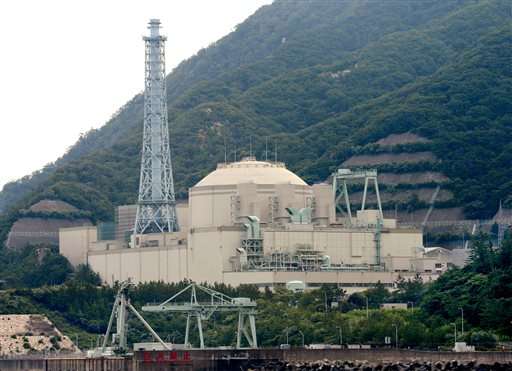Japan regulator wants plutonium reactor operator replaced

Japan's nuclear regulator issued a rare warning Friday to the science minister, telling him to disqualify the operator of a plutonium-fueled reactor plagued with a poor safety record, a step that could finally shut it down.
The Monju plant was once considered a "dream reactor" that would make use of the plutonium produced by Japan's regular uranium-fueled reactors as a byproduct in their spent fuel. The ultimatum by the Nuclear Regulation Authority could add further uncertainty to Japanese energy policy, already shaken by the 2011 crisis at the Fukushima nuclear plant.
Japan already has 47 tons of plutonium on hand and no immediate use for it.
The regulator said in the warning that the government-run Japan Atomic Energy Agency must be replaced as the plant's operator within about six months, or the ministry, which oversees the agency, would have to consider shutting it down.
The authority, in a statement to Science Minister Hiroshi Hase, said the atomic agency is not qualified to safely operate the complex reactor.
The agency is considered the only entity that has expertise and the technology needed to run Monju. Unlike conventional reactors that use water as a coolant, the Monju reactor uses flammable sodium, a leak of which caused a fire 20 years ago in an accident that largely doomed the reactor.
Monju has been mostly mothballed since then, forcing the government to resort to an alternative method to reduce its stockpiles of plutonium—mixing it with uranium to produce MOX fuel, which can be used for a portion of the fuel in conventional reactors.
Japan is also planning to restart its Rokkasho reprocessing plant to cope with increasing amounts of nuclear waste from power plants. Rokkasho extracts plutonium and uranium along with waste products from spent nuclear fuel, and Monju's demise would leave fewer options for consuming that highly radioactive plutonium.
The 1 trillion yen ($8.2 billion) Monju plant has not produced power since the 1995 accident, which occurred months after it went online.
Chief Cabinet Secretary Yoshihide Suga said the government takes the authority's warning seriously as "the last chance to regain the public trust."
© 2015 The Associated Press. All rights reserved.





















